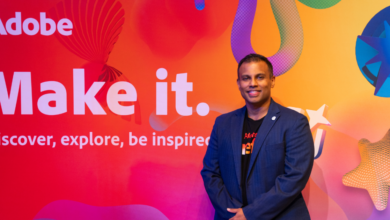Oracle expands generative AI across its CX applications

Oracle CX applications users got a second infusion of generative AI tools for CRM, contact center, field service and marketing this week.
Oracle added Assisted Answer Generation for contact center agents, which crafts contextually aware responses to customer questions during customer interactions; Assisted Scheduling for Field Service, which can hash metrics such as availability, location, skills and billing status to schedule technician visits; tools for sales and marketing that identify and recommend particular products to particular buyers; and GenAI content authoring tools for marketing and sales email, web content and other collateral.
All of the features are available in Oracle Fusion Cloud Customer Experience (CX), with the exception of lead scoring for marketing and sales, which will be available soon.
The new features build on Oracle’s first wave of CX GenAI, released last month. Customers on Oracle’s Product Council heavily influence the company’s CX roadmap, said Katrina Gosek, vice president of Oracle CX product strategy and marketing.
“I would say we’re very market-driven,” said Gosek, who met with hundreds of customers during six regional CloudWorld user events in March and April. “We get a lot of our market information from customer use cases.”
Field service ripe for GenAI
Field service is one area in which Oracle and competitors, including Salesforce, are investing in GenAI. That is because field service technicians’ time is costly, and any tool to help make the job more efficient can save field service-intensive companies in verticals such as manufacturing or telecommunications a great deal.
While tech vendors have used machine learning and rules-based algorithms to optimize technicians’ schedules and to map their routes for years, generative AI can add efficiency, said Liz Miller, an analyst at Constellation Research. Generative AI can summarize repair content, search more data in customer records and connect technicians with teammates who can help them solve thorny problems.
But GenAI alone isn’t doing all the heavy lifting. It’s the combination of new technologies and previous workflow tools that layer on new efficiencies, Miller said.
“It’s not just AI, it’s not just generative AI or AI processes — it’s automation and machine learning, too,” Miller said. “We’re now connecting dispatch, operations, research [and] technician resources. We’re connecting all these dots so that the field service rep is given more control than they’ve ever been given.”
GenAI’s data access make old ideas new
Salespeople and marketers might look at some of Oracle’s GenAI tools and see the same old lead scoring and audience segmenting features that machine learning or rule-based algorithms that companies such as Oracle and Salesforce have offered for years.
Not so, said Gosek: Generative AI’s ability to ingest unstructured data opens up deeper searches of enterprise data to bring back better, more precise and accurate results. That, in turn, can create efficiencies and more success for marketers and salespeople.
Miller said she’s observed that that’s how it works among users of GenAI for CX. Many companies use front-office data from CRM and web traffic to make personalized engagements with customers as well as back-office data such as contracts and orders.
“Generative AI allows people to ask different questions without breaking the model underneath — it’s about the capacity to interrogate data differently,” Miller said. “But it’s also about the capacity to pull in some of the service data that was based on [customer comments] that you really couldn’t before. You can put structured and unstructured data side-by-side and not have to re-create a whole database or engage in a massive MDM project.”
Oracle released these new features in conjunction with the CloudWorld Mexico City user conference on Thursday.
Don Fluckinger is a senior news writer for TechTarget Editorial. He covers customer experience, digital experience management and end-user computing. Got a tip? Email him.

![[Podcast] Private Market Talks: Generative AI, From Theory to Practice with AIx2’s Mohammad Rasouli | Proskauer – Private Market Talks Podcast [Podcast] Private Market Talks: Generative AI, From Theory to Practice with AIx2’s Mohammad Rasouli | Proskauer – Private Market Talks Podcast](https://europeantech.news/wp-content/uploads/2024/05/og.16261_2240-390x220.jpg)

